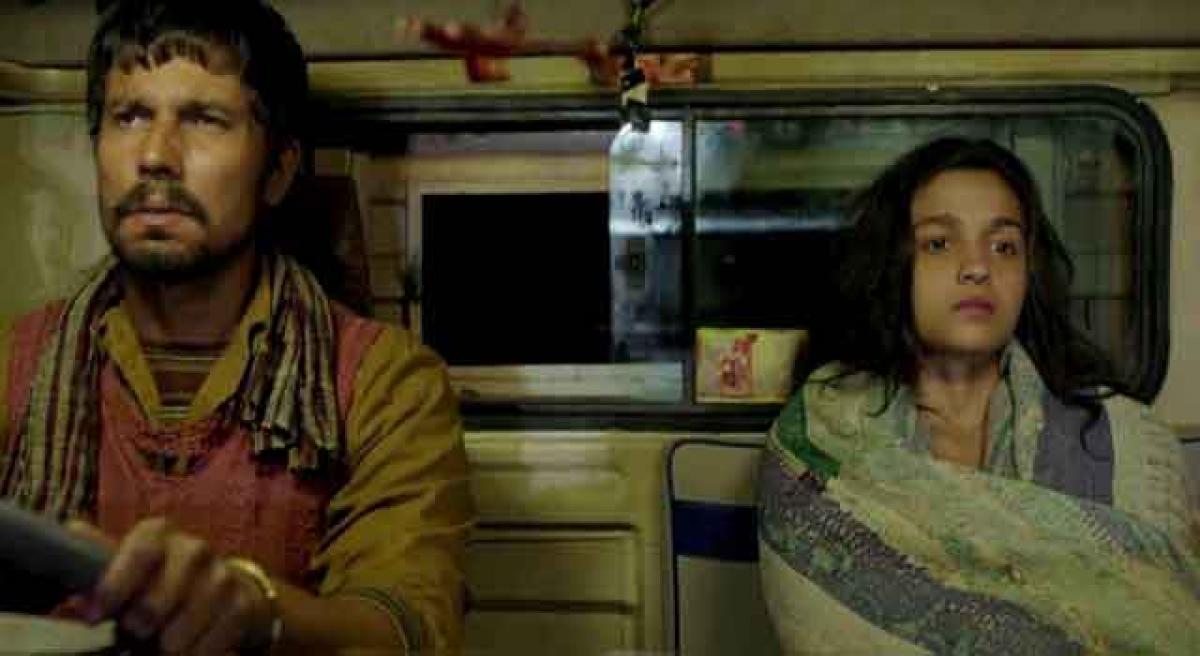Live
- AI Model Detects Residual Brain Tumors in 10 Seconds, Offers Real-Time Surgical Guidance
- Reliance and Disney Complete JV Deal to Strengthen Entertainment Presence in India
- UP Govt Agrees to Protesters’ Demand, PCS Exam to Be Held in One Day
- Trump’s Social Security Tax Promise Faces Hurdles: What Retirees Need to Know
- Strict Action Needed Against Attacks on Government Employees - Retired Employees
- Hyundai Motor India Limited Announces 2024 Edition of ‘Hyundai Always Around’ Campaign
- Minister for Environment, Forests, and Endowments Celebrates Karthika Pournami and Guru Nanak Jayanti
- World Quality Day: Hindustan Zinc Reaffirms Commitment to Superior Product Quality & Innovation
- Grand Kartika Purnima Celebrations at Nagar Kurnool’s Saraswati Shishu Mandir
- Children’s day celebrations, Karnataka remnisences on Nehru’s contributions
Just In

City Lights’, ‘Shahid’, ‘Highway’, and ‘Tamasha’ are a few names that quickly come to my mind when we talk about intellectual cinema. These are claimed to be great intellectual stuff and these movies have, to put it politely, have bombed at the box office. Beyond the golden elephants and silver rhinos that these movies win in film festivals across the world, they have missed the most precious awar
City Lights’, ‘Shahid’, ‘Highway’, and ‘Tamasha’ are a few names that quickly come to my mind when we talk about intellectual cinema. These are claimed to be great intellectual stuff and these movies have, to put it politely, have bombed at the box office. Beyond the golden elephants and silver rhinos that these movies win in film festivals across the world, they have missed the most precious award of them all – audience appreciation.
One is therefore tempted to ask does the audience do not recognise good content and serious cinema. The last time this debate took place I remember that it hit the public domain when ‘Khamoshi’ bombed. Sanjay Leela Bhansali, the director, had blamed it on the audience insensitivity and said, Indians were not ready for classy cinema.
In my book ‘Khamoshi’ was a third class rip off of the classic ‘Koshish’ from 1972. ‘Koshish’ incidentally was a big box office hit. That brings me to my favourite question over the years. Do these filmmakers make intellectual cinema or incapable cinema? Is the audience insensitive to good stuff or the directors are too arrogant to realise that they have not really made watchable stuff.
In fact, the four names mentioned above are a part of my long list of what I have often termed as intellectual nonsense cinema. If you look carefully at the presentation of all these four movies mentioned above you will see the first glaring problem in all four of them, a boring and dragging screenplay.
The editor in all these movies was either on strike or wanted to settle a personal score with the director or was just not allowed to pick up his scissors. My personal biggest drag star in the four mentioned above is ‘Highway’, this movie, if I recall correctly, had scenes where the camera just focuses on the road divider marks or on the goats and cows that roam around highways.
You would forget the movie and start counting the divider marks and the cows that the director chose to show us. Around 133 minutes of its running time probably it had 40 minutes of actual presentable content. ‘Tamasha’ in my opinion, forget a boring screenplay, did not have a screenplay at all. Despite this movie being painfully stretched and the audience came out alive of this one was only because of the sheer individual brilliance of Ranbir and sincere earthiness of Deepika.
Thankfully, I saw a brief interview of Imtiaz Ali which said, ‘Tamasha’ is about people who are forced to live a life, which is not meant for them. Therefore, I was able to understand the movie else I would have just sat through it like a zombie. Now either I am dumb or the story writer is.
I do not wish to buy the claims of the audience being insensitive we like good mature cinema you can look at the BO numbers of ‘Taare Zameen Par’ and ‘Kai Po Che’ to get my point.
In fact, the audiences also have their own way of apologising and making up for ignoring or giving good cinema its fair due. I have three examples of this. ‘Haasil’, one of India’s best films on student politics by Tigmanshu Dhulia did not work at the box office but is a cult now on YouTube and social media. ‘Jaane Bhi Do Yaaro’ is now the ‘Sholay’ of comedy thanks to the repeat audience views on DVDs and internet. ‘Agneepath’ found its redemption slowly through silent growing audience respect so much that it's inspired remake in 2012 counted huge cash at the box office.
The audience will watch a good cinema, which can keep them hooked, is the point. The fact of the matter is, barring honourable exceptions, the Indian audience can see through what an intellectual cinema is and what incapable cinema is. Each time a thick skinned director dishes stuff, which he thinks is too good for people to understand e gets punished at the box office, then finding refuge in the classic ghisa-pita dialogue that my cinema is for classes, not masses is the answer.
If you think audiences cannot judge a good cinema you just have to look at the box office figures of ‘Sairat’. The viewers know what they want to watch. Frankly, it is these directors, who do not know where they stand or what they are making. The box office has the wisdom, which a lot many of us do not understand.

© 2024 Hyderabad Media House Limited/The Hans India. All rights reserved. Powered by hocalwire.com







